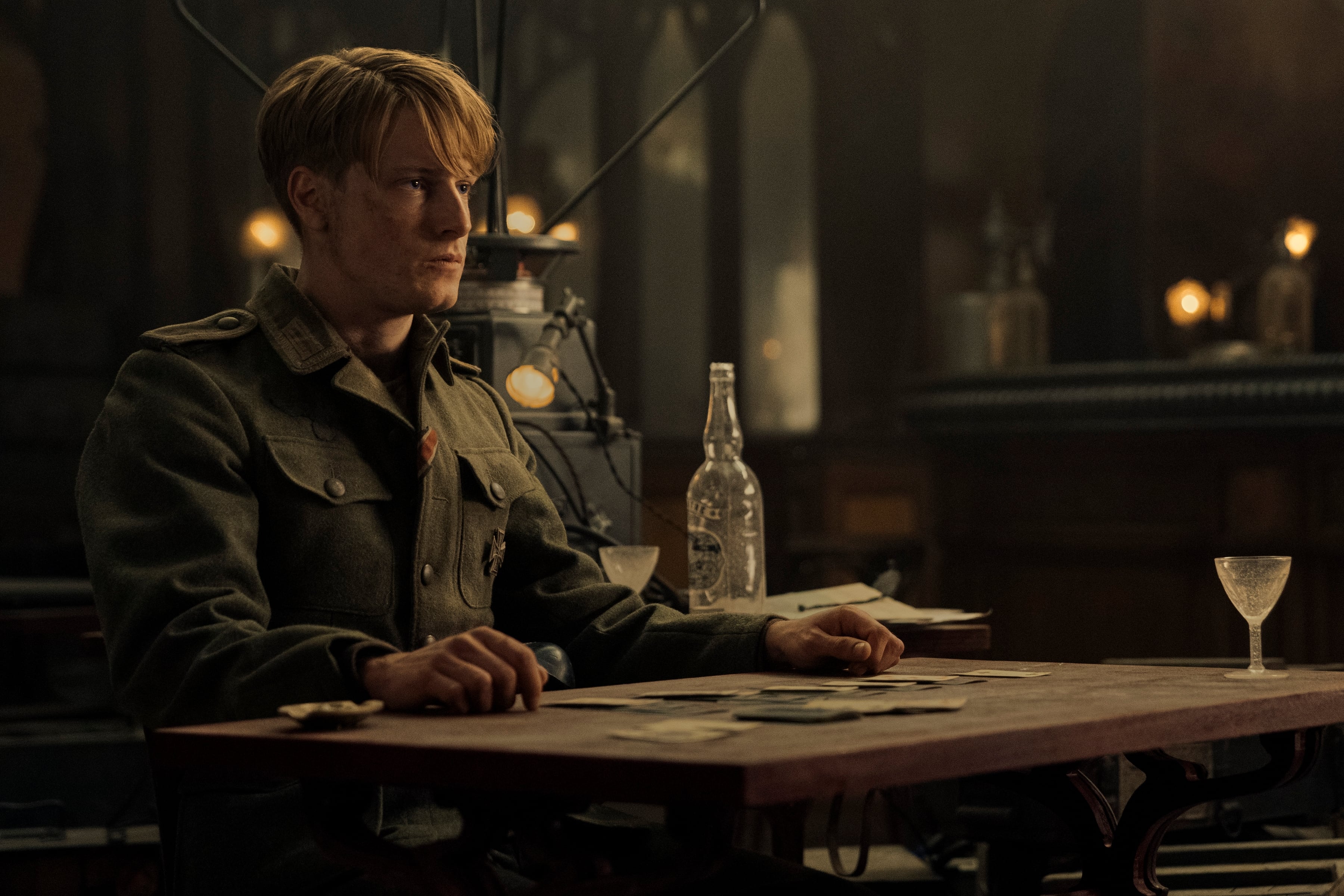Anthony Doerr’s Pulitzer Prize-winning novel “All the Light We Cannot See” has finally gotten its much-anticipated screen treatment courtesy of a Netflix mini-series.
And although the show features a shining cast, a gorgeous backdrop, and cinematic lighting that would make a bespoke Brooklyn bartender salivate, the on-screen translation ultimately has its wires crossed.
Centering on a radio broadcast from the small, seemingly doomed French town of Saint-Malo in the waning days of World War II, this story features signal-crossed lovers at what feels like the end of the world.
The resplendent, walled, seaside city, which has been taken over by Nazis, serves as the backdrop for the first episode, featuring Marie-Laure LeBlanc (Aria Mia Loberti), a blind girl who reads excerpts from a braille copy of Jules Verne’s “20,000 Leagues Under the Sea” each night on the radio.
Her most ardent listener is a reluctant Nazi soldier named Werner Pfennig (Louis Hofmann), who was conscripted to find and destroy anti-German radio broadcasts. Instead, he listens to Marie’s reading each night, enchanted. The duo seem poised for a Romeo and Juliet meeting, while death, as with the Shakespearian tragedy, is ever-present.
It can be hard to recall at points that the main driver of the story involves Marie’s museum curator father, Daniel (Mark Ruffalo), attempting to protect a cursed diamond from a Nazi named Reinhold von Rumpel (Lars Eidinger). In von Rumpel’s relentless pursuit of Marie, he becomes the tie beyond radio wires that connects her to Pfennig.
Although “All the Light We Cannot See” is a beautiful story and certainly worth a watch for aesthetic cinema alone, the show’s pacing feels inconsistent and the jumps between timelines create awkwardness on screen that did not exist in print. Moreover, the tightness of a mini-series doesn’t provide enough time to get beyond the shallows of each character or the nuances of their broken worlds.
Fans of the book are likely to be disappointed by the one-dimensional nature of the characters. Moreover, it can feel difficult at times to view Pfennig — a Nazi — through a sympathetic lens despite the implied disdain he has for being one.
Ultimately, the uneven pacing and timeline jumps create a disjointed viewing experience. Much like the radio that Pfennig attempts to fix in the first episode, an on-screen treatment of “All the Light We Cannot See” could stand to be rewired.
Sarah Sicard is a Senior Editor with Military Times. She previously served as the Digitial Editor of Military Times and the Army Times Editor. Other work can be found at National Defense Magazine, Task & Purpose, and Defense News.




